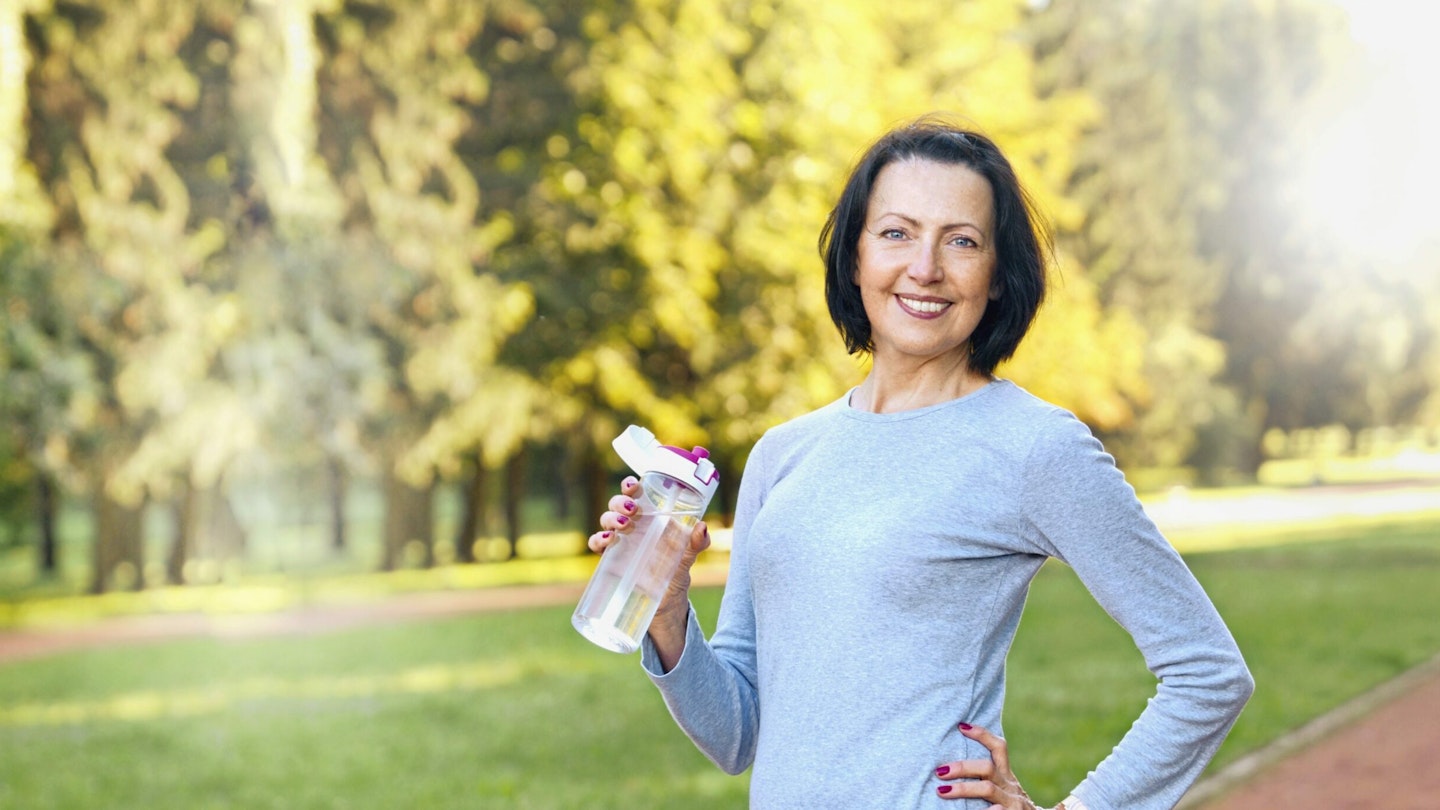Find out what really works
Often, we read about the physical effects of menopause — the horrendous night sweats and hot flushes.
But it’s often the psychological symptoms — the anxiety, loss of confidence and low mood — that are the main reason many women visit their GP.
Research suggests that a staggering nine-in-10 women going through the menopause experience mental-health issues, with many suffering from crippling anxiety and depression.
Dr Olivia Hum, GP and British Menopause Societyrecognised menopause specialist, says: ‘Managing mental health during the menopause can be complex, and it’s vital women get the help they need. My advice is to download an online symptom checker, fill it in and show your GP. ‘Ask for a three-month trial of HRT to see if your symptoms improve. It won’t be right for everyone, but many women will quickly notice a change for the better. ‘The most important thing is that no woman feels they just have to accept poor mental health during the menopause. With the right treatment, symptoms can improve and everyone can feel better.’
HRT
HRT has been shown to help improve mood disorders in menopausal women by using replacement oestrogen to stabilise hormones and boost low mood.
In fact, there’s some evidence that if women are given HRT when perimenopausal, it may reduce the incidence of clinical depression even developing
Olivia says: ‘A lot of women tell me that their layer of resilience goes during the menopause — suddenly they’re struggling to cope with things that once wouldn’t have bothered them. They constantly feel on edge, snappy and tearful. Yet many women find adding back oestrogen help restore feelings of calm, joy and resilience. ‘Furthermore, as oestrogen is reintroduced to their bodies, many women start sleeping better — a major contributing factor for good mental health.’
Antidepressants
Research suggests that over a third of women going to their GP with symptoms of the menopause are being offered antidepressants.
However, NICE guidelines state it’s important that menopausal women understand that there’s no clear evidence that antidepressants help to ease low mood in menopausal women who’ve not been diagnosed with clinical depression.
Olivia says: ‘For people who’ve got new onset mental health disorders around the menopause, it’s definitely worth looking into HRT as a first-line treatment rather than antidepressants.
‘However, disentangling what’s a hormonal imbalance and what’s a mental health disorder is incredibly complicated. So, while it’s true that some women who could do with HRT are being offered antidepressants incorrectly, some women really need antidepressants and there’s no shame in that. Antidepressants can be fantastic in helping women with clinical depression or anxiety to function.
‘But women who say: “I’ve never been anxious before, and now I’m waking up at night with crippling waves of anxiety” may benefit more from HRT than antidepressants.’
CBT
Olivia says: ‘It’s important to remember that a lot of women can’t or don’t want to take HRT, and there are lots of ways we can help them too.
‘For example, there’s really's really good evidence for the effectiveness of cognitive behavioural therapy (CBT) in helping to manage low mood, anxiety and depression. Interestingly, there’s also good evidence that CBT can be used to help with hot flushes.
‘For those where poor sleep is impacting their mood, cognitive behavioural therapy for insomnia (CBTi) can be hugely beneficial. Speak to your health professional about what might be right for you.’
Lifestyle factors
Olivia says: ‘As well as looking at hormone levels, it’s important to address lifestyle factors that can impact your mental wellbeing during the menopause too.
‘For example, exercising outside is a great way to boost endorphins, which are a bit like our “natural antidepressants”.
‘But exercise doesn’t always need to be vigorous. Pilates and yoga can be really beneficial. In fact, there’s lots of evidence around the benefits of yoga for mental health, as well as mindfulness, meditation and relaxation exercises.
‘A healthy, balanced diet with lots of fruit, vegetables and phytoestrogens, which are plant oestrogens found in things like soy, flax seeds, lentils and chickpeas, is key. Limiting alcohol helps too.
‘Finally, good sleep is integral. Keep your bedroom as cool as possible at night and develop a consistent bedtime routine. The better-quality sleep you get, the more improved your mood’s likely to be.’
